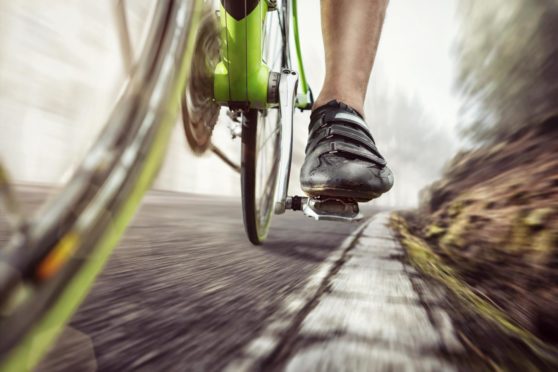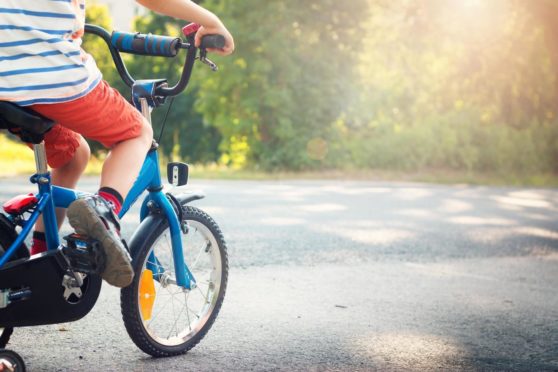My eldest son wobbled down the road on his bike, now shy of stabilisers.
He stopped frequently to point out all the imaginary hazards in his way.
I made encouraging noises and tried to mask my frustration.
Come on, you can do this, I urged. He wasn’t convinced. He didn’t want to risk falling.
It struck me then, how often as a parent we use words rather than actions to model how to manage fear.
The only way to do this is to squeeze your big feet into their small shoes.
As kids start the new school year, there can be a pressure to sign them up to as many classes or clubs that you can juggle.
And they all have their merit, but before you put this pressure on yourself also consider the value in stepping out of your own comfort zone and talking to them about how this feels.
Many people have embraced the fitness initiative ‘Couch to 5K’ or plan to take part in their local Parkrun, which excitingly returns to Inverness this month.
You will not meet a more positive group of people cheering everyone around the course no matter what their pace. It epitomises the spirit of praising effort.
Firsts are not just for children
For others, it may be trusting in your own abilities and trying something new or accepting an invite, maybe even speaking to someone unfamiliar at the school gate.
Experiencing ‘firsts’ defines childhood, adolescence and early adulthood but as we mature life becomes more familiar.
To experience the adrenaline rush of pushing yourself, learning and potentially surprising yourself needs conscious effort and choice.
It leaves us open to frustration and disappointment but also to feelings of fulfilment and pride.
Importantly, it helps us to connect to our child’s experience of negotiating these emotions and to relate with greater empathy.
To help my son build his confidence cycling, I agreed with him that if he kept trying to master his balance, I would learn how to ride my bike with cleats.

You may not be familiar with the ‘stick on pedals’ as my son calls them, but you might recognise the sight of a cyclist body slamming the road when they can’t release their foot quick enough when coming to a stop.
This was the image I had in mind when I agreed to brave these scary new pedals.
‘It hurt and I tell my son this’
I knew I would fall in the process, and I did. Many times. It hurt and I tell my son this.
I tell him that I feel like giving up at times, that I have to speak to myself kindly and take deep breaths when it feels too hard.
We laugh and try not to take ourselves too seriously when things don’t go to plan like me trying to disentangle myself from a nettle bush with my bike attached to my foot.
We show each other our bruises and they hurt a little less as we share our success and take pride in our new pedal power.
Dr Tracy McGlynn is the mother of two young boys and a clinical child psychologist who works for the NHS with families in the Highlands.
She has written previously for the Press and Journal.

